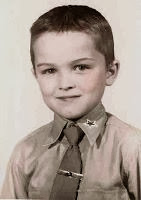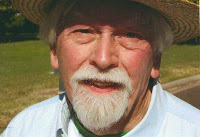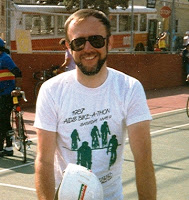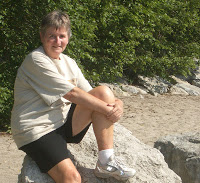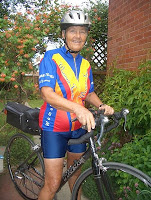In the beginning was The Center. Within The Center lived The SAGE. The SAGE was troubled for there were many senior citizens who wanted to speak out and share their wisdom with anyone who would listen, but their efforts to speak were thwarted due to sheer randomness of contacts and little opportunity to share their wisdom. So there was much listlessness, lack of purpose, and frustration in the senior community. The SAGE was not happy with the situation, but knew not what to do. One day, Jackie Foglio, a young female college student, came to visit The SAGE and presented a plan to help the senior community organize to share their wisdom. The SAGE recognized value in the proposal and sanctioned the formation of a group-program to get the senior community to share their wisdom and history with others – and so it began.
It started in another place and later continued in a small room near this room six years ago. The first seniors to gather were very few in number and all male. In fact, there were more words in the room than people doing the speaking. The spoken words described personal memories of each senior’s life related to a topic used to trigger the memories of each senior.
At first, spoken words were all that was necessary but all such group efforts evolve with time. Eventually one person after another chose to prepare their spoken words in advance, writing them down on paper to ensure clarity and to maintain focus on the memory inspired by the topic.
After a relatively short time, women began to join the group. What a positive impact that had!
As time progressed, the quality of the writing improved for most seniors attending the group. It was also decided that the group was neither to become a “writers group”, teaching seniors how to write better, nor to be critical of another’s writing. Once again evolution happens and now many words are straying from personal life memories and occasionally delving into topics which have nothing to do with one’s own life.
In 2011 I joined the small group of seniors in the small room near this one. I discovered that writing my story was to be preferred as I am prone to either ramble or forget parts. I also found that either telling or writing my memories to be very therapeutic, especially since I’ve been in the “coming out” process since October 2010. I believe some others in this group are experiencing the same.
Soon after joining, I began agitating for an idea that had previously been discussed but nothing had come of it – publishing our stories. I suggested a small paperback book for The Center to use as a “thank you” gift to financial donors. A lack of funding cancelled out that option. Eventually, The SAGE and The Center, decided to host our stories on their website and our group’s blog began.
As the size of our group grew, so did the number of submitted stories to the point that every author would have at least one story each month. Sadly, as some seniors have left the group and other seniors joined, the volume of submitted stories to the blog has greatly diminished. There are a few legitimate reasons for this that I will not list here, but the net result is that the blog now represents basically five group members. This is not sustainable in the long term as we do not have all the wisdom and experience that this group of seniors collectively has.
Group dynamics and evolution are still operating. Since the beginning, our group has added a strong social component to the story telling purpose. So I ask, “Where do we go from here?” or perhaps I should ask, “Where are we heading? Where should we go from here? Do we want to keep the blog? Will you all support the blog by submitting stories?” In my opinion, the answers to these questions will determine not only the future of the blog but also of the group itself. Please give it some thought.
© 11 January 2016
About the Author
I was born in June of 1948 in Los Angeles, living first in Lawndale and then in Redondo Beach. Just prior to turning 8 years old in 1956, I began living with my grandparents on their farm in Isanti County, Minnesota for two years during which time my parents divorced.
When united with my mother and stepfather two years later in 1958, I lived first at Emerald Bay and then at South Lake Tahoe, California, graduating from South Tahoe High School in 1966. After three tours of duty with the Air Force, I moved to Denver, Colorado where I lived with my wife and four children until her passing away from complications of breast cancer four days after the 9-11 terrorist attack.
I came out as a gay man in the summer of 2010. I find writing these memories to be therapeutic.
My story blog is TheTahoeBoy.Blogspot.com
